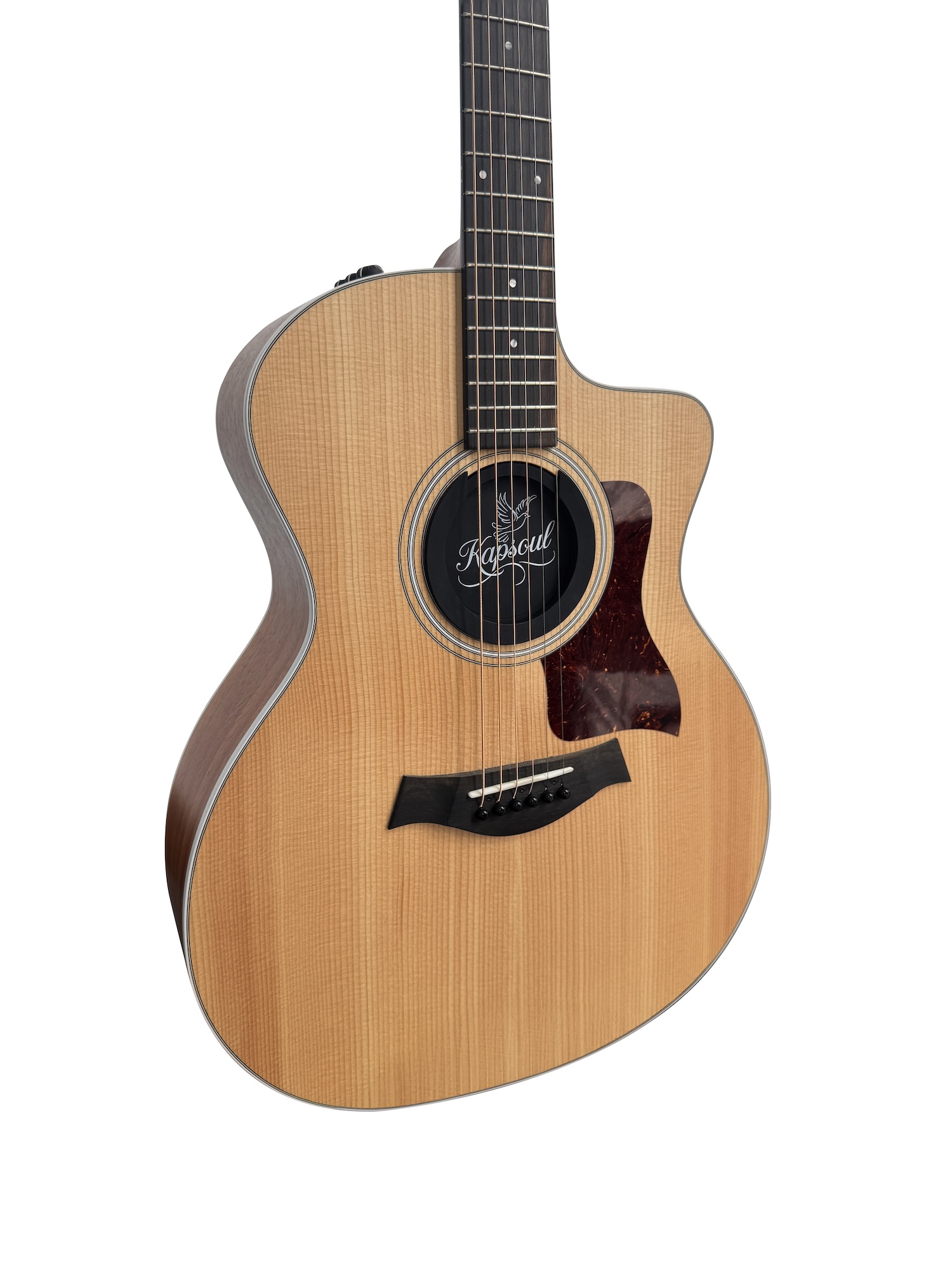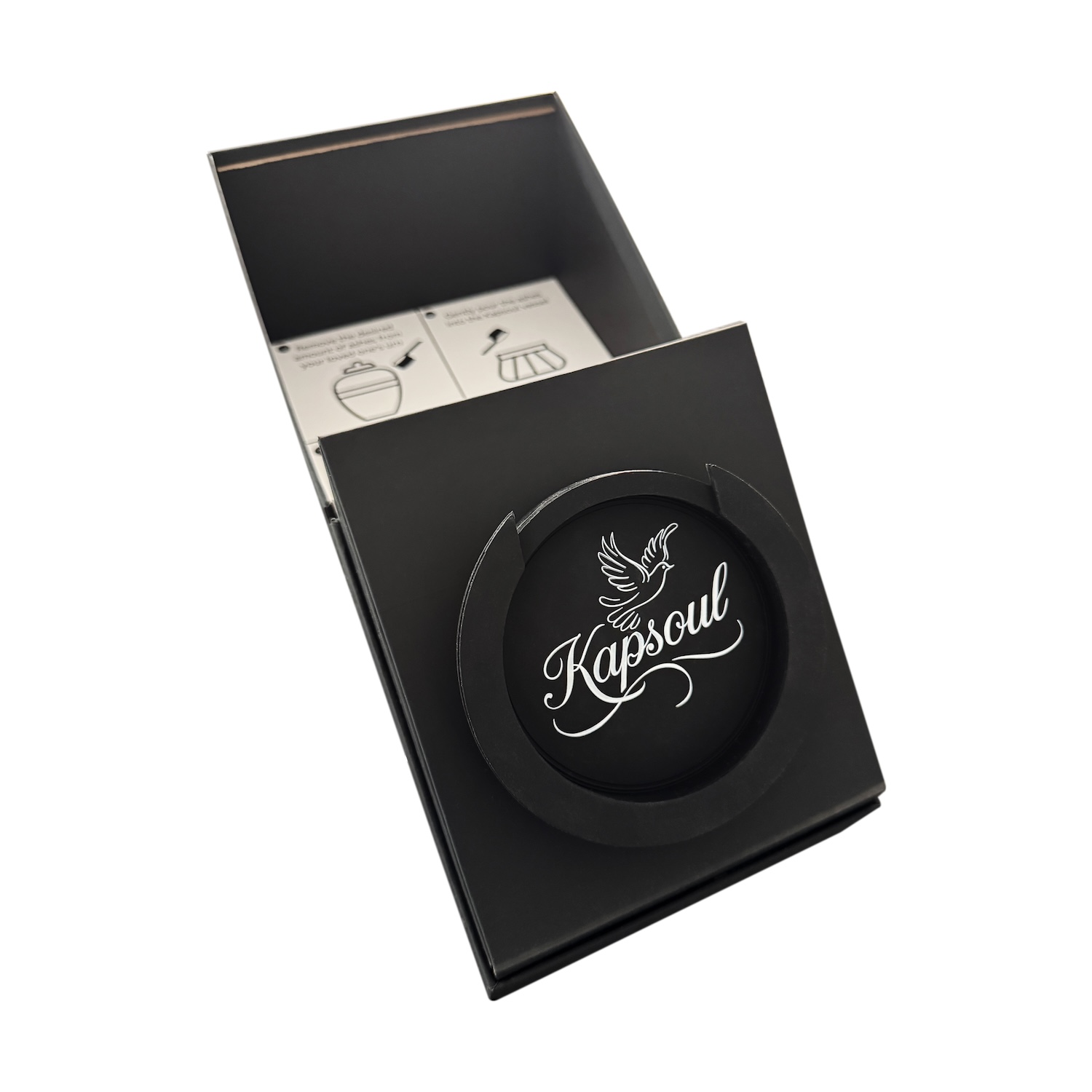Music has always been humanity’s universal language of comfort. When words fail us during our darkest moments, melodies step in to cradle our emotions and guide us toward healing. For those who wish to honor their passion for music even in remembrance, there are special urns for music lovers available. Over my years of teaching guitar, I’ve witnessed countless students discover that their instruments could become sources of profound solace during times of loss and grief.
The therapeutic power of music isn’t just a beautiful concept—it’s a scientifically documented phenomenon that offers real healing benefits. For guitarists dealing with the loss of loved ones, this healing potential becomes even more meaningful when combined with innovative memorial products like KapSoul, which creates a deeper connection between musical practice and remembrance.
The Science Behind Music’s Healing Power
Research consistently demonstrates music’s remarkable ability to facilitate emotional healing. When we play guitar, our brains release endorphins, dopamine, and serotonin—natural chemicals that combat depression and anxiety. The bilateral stimulation created by coordinating both hands while playing activates multiple brain regions simultaneously, promoting emotional processing and integration.
Studies from the American Music Therapy Association reveal that musical engagement reduces cortisol levels by up to 38%. For grieving individuals, this stress hormone reduction provides crucial relief from the overwhelming physical symptoms that often accompany emotional trauma. The rhythmic nature of guitar playing also synchronizes brainwaves, creating meditative states that support healing.
Neuroscientist Dr. Daniel Levitin’s research shows that musical activities stimulate the vagus nerve, activating our parasympathetic nervous system—the body’s “rest and digest” response. This physiological shift helps grieving individuals find moments of peace amid emotional turbulence.
Guitar as a Therapeutic Companion
The guitar holds unique advantages as a healing instrument. Unlike other instruments that require extensive formal training, basic guitar skills can provide immediate emotional outlet. The physical act of pressing strings creates tangible connection between internal feelings and external expression—a crucial element in processing grief.
The instrument’s portability ensures therapeutic access whenever emotions become overwhelming. Students often tell me they reach for their guitars during sleepless nights, finding comfort in familiar chord progressions when nothing else helps. The guitar becomes a constant companion through the unpredictable waves of grief.
Fingerpicking patterns create particularly soothing effects during emotional distress. The gentle, repetitive motions activate the same neural pathways as other self-soothing behaviors, while the resulting melodies provide emotional release. Many of my students develop personal repertoires of “comfort songs” that serve as musical first aid during difficult moments.
Traditional Approaches to Musical Healing
Established music therapy practices provide structured frameworks for healing through guitar. Receptive therapy involves listening to carefully selected pieces that evoke specific emotional responses. For grieving guitarists, this might mean playing songs that held special meaning for deceased loved ones.
Improvisational therapy encourages spontaneous musical expression without predetermined structure. I guide students through exercises where they let emotions flow through their fingers without worrying about technical perfection. These sessions often produce profound breakthroughs in emotional processing.
Compositional therapy involves creating original pieces that express personal experiences. Many students find tremendous healing in writing songs about their loved ones, transforming memories into melodies that preserve and honor their relationships.
How KapSoul Enhances the Healing Process

KapSoul represents a revolutionary advancement in musical healing by creating physical connection between therapeutic practice and memorial remembrance. This specially designed soundhole cover fits most acoustic guitars with 4-inch diameter sound holes and securely holds up to 8 ounces of a loved one’s ashes within its PPH (Polypropylene Homopolymer) interior lining.
The healing impact of KapSoul extends beyond traditional music therapy by adding a tangible element to the process. When students play with KapSoul installed, the vibrations from their guitar strings literally move through the space where their loved one rests, creating a physical manifestation of continuing connection.
This unique approach transforms routine practice sessions into sacred rituals that honor the deceased while supporting the griever’s healing journey. The included scooper facilitates respectful placement of ashes, ensuring the process remains dignified during an already challenging time.
Enhanced Therapeutic Benefits of KapSoul Integration
Incorporating KapSoul into musical healing practice offers several unique advantages that amplify traditional therapeutic approaches:
- Deepened Emotional Processing: Physical connection with loved one’s remains while playing facilitates more profound emotional integration than conventional therapy methods
- Ritual Development: Creates meaningful ceremonies around musical practice that provide structure during chaotic grief periods
- Continuing Bonds Support: Maintains healthy connection with deceased loved ones through shared musical experiences, supporting contemporary grief theories
- Immediate Comfort Access: Provides instant memorial connection when grief waves strike unexpectedly
- Enhanced Focus: Memorial presence increases concentration and intentionality during therapeutic sessions
- Reduced Isolation: Combats loneliness by maintaining sense of presence and shared activity
- Legacy Creation: Transforms guitar into meaningful family heirloom with deep personal significance
- Community Building: Facilitates connections with other musicians dealing with loss

Practical Applications for Healing
Students using KapSoul often report transformative changes in their grief experience. The memorial connection transforms their relationship with loss from something that happened to them into something they actively engage with through music.
Initial playing sessions with KapSoul might be emotionally overwhelming, so I recommend starting with short, gentle pieces that held positive associations for the deceased. Choose songs that provide comfort rather than intensify sadness. The goal is creating sustainable healing practices, not overwhelming emotional experiences.
Many students develop pre-playing rituals that enhance the therapeutic value of their KapSoul sessions. This might involve lighting candles, speaking to their loved one while tuning, or dedicating specific practice time to memory and reflection. These rituals create sacred space that supports deeper healing work.
Navigating Emotional Intensity
KapSoul amplifies the emotional intensity of musical practice, which requires careful navigation. Some days, students feel inspired and connected. Other days, the memorial presence might feel overwhelming. Both responses are normal parts of the healing process.
I teach students to approach their memorial guitar with self-compassion. If emotions become too intense, it’s perfectly acceptable to take breaks or choose lighter musical activities. The healing process isn’t linear, and neither should be the musical journey.
Journaling about KapSoul experiences helps students track their emotional progress and identify patterns in their grief processing. Many discover that their playing becomes more expressive and meaningful over time as they adjust to their enhanced memorial connection.
Building Support Networks
KapSoul often creates unexpected connections between musicians dealing with loss. Students frequently seek out others who understand the profound relationship between music and memory, leading to supportive communities built around shared experiences.
Online groups have emerged specifically for KapSoul users, providing platforms for sharing compositions, discussing emotional challenges, and offering mutual support. These communities demonstrate how individual healing tools can create collective support networks.
Local music groups sometimes organize memorial jam sessions where multiple KapSoul guitars create ensemble pieces honoring the deceased. These gatherings combine individual healing with community support, amplifying the therapeutic benefits for all participants.
Long-term Healing Outcomes
Students who integrate KapSoul into their healing practice often report sustained improvements in their grief processing. The memorial connection provides ongoing comfort during difficult anniversaries, holidays, and unexpected grief episodes.
Many describe feeling their loved one’s presence during playing sessions, which transforms their relationship with loss from finalized ending to continuing connection. This shift aligns with contemporary grief theories that emphasize maintaining bonds rather than achieving closure.
The therapeutic benefits often extend beyond personal healing. Family members and friends who witness these musical memorial sessions frequently find their own comfort and healing through the shared experience.
Conclusion: A New Paradigm in Musical Healing
KapSoul represents more than an innovative product—it’s a new paradigm in musical healing that acknowledges the profound connection between physical presence, musical expression, and emotional recovery. By literally incorporating loved ones into the healing process, it validates the ongoing nature of love while providing tangible support for those navigating grief.
The combination of music’s natural therapeutic properties with KapSoul’s memorial presence creates healing opportunities that transcend conventional therapy boundaries. For guitarists seeking comfort through their darkest moments, this unique approach offers a path toward healing that honors both their musical passion and their enduring love for those they’ve lost.
